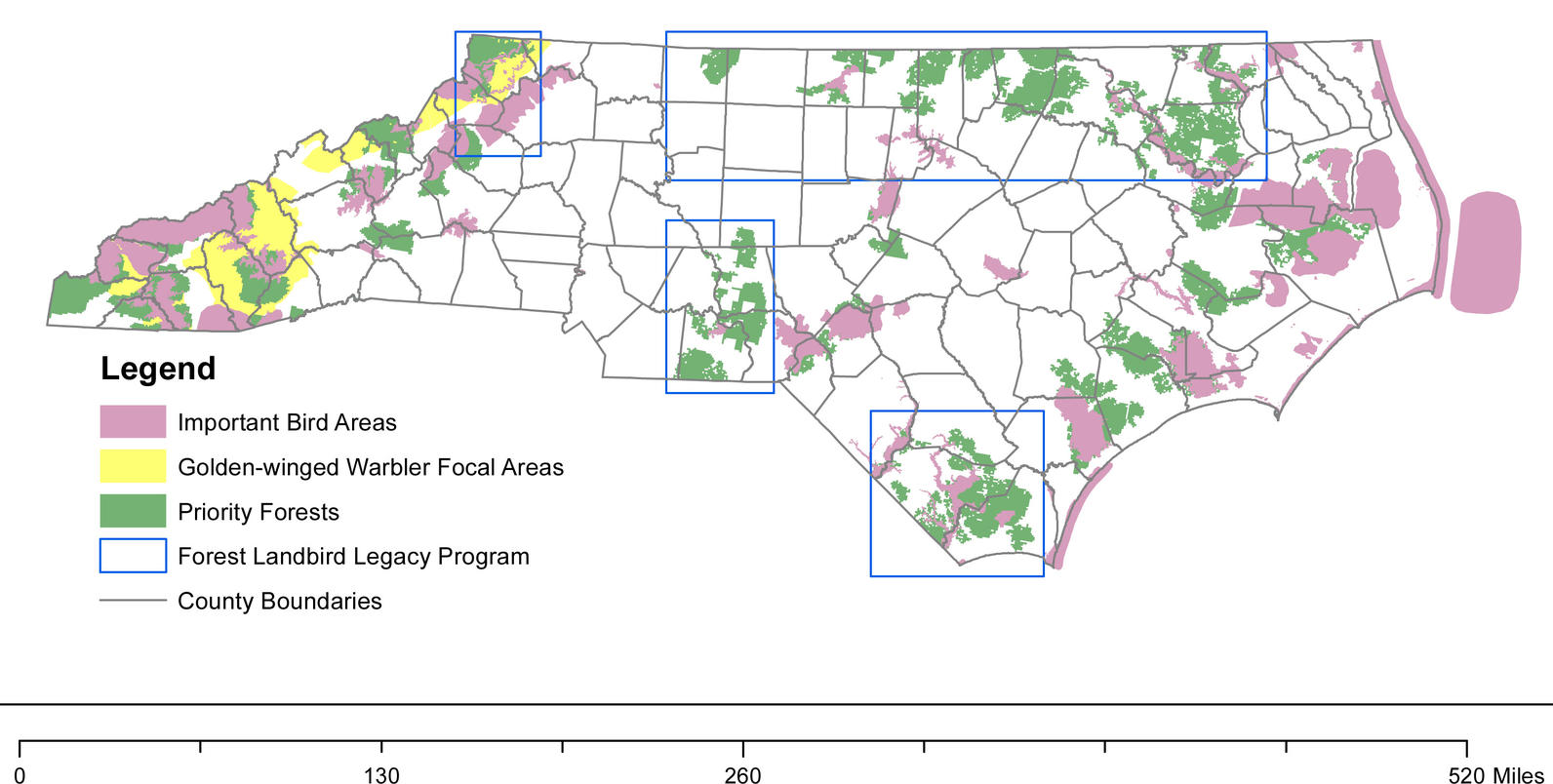Golden-winged Warbler
Latin: Vermivora chrysoptera
Working Lands
Photo: Aimee Tomcho
Audubon has crafted a collaborative approach to forest management to restore habitats for birds and wildlife across North Carolina. By developing partnerships, training opportunities, management plans and demonstration sites Putting Working Lands to Work for Birds and People is providing landowners with the tools to enhance their property in cost-effective ways while supporting struggling populations of priority bird species.

Help secure the future for birds at risk from climate change, habitat loss and other threats. Your support will power our science, education, advocacy and on-the-ground conservation efforts.
Keep up-to-date on all that happens with Audubon North Carolina's research, events and volunteer opportunities.